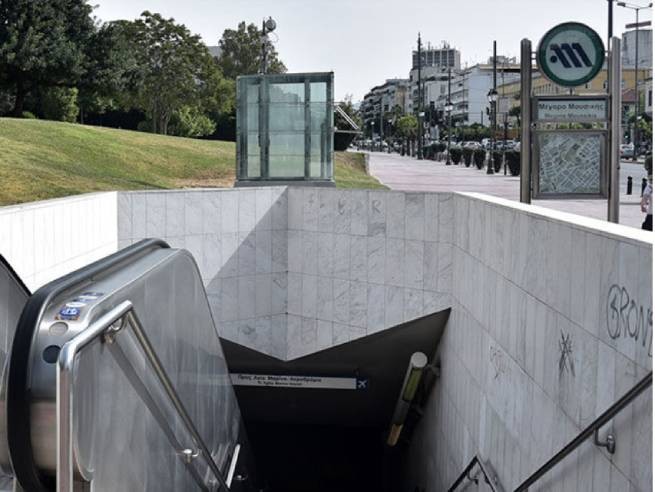The second round of local elections turned out to be a crushing defeat for New Democracy: it lost five of the six regions, as well as its stronghold – the municipalities of Athens and Thessaloniki.
In particular, New Democracy loses Thessaly, where Dimitrios Kouretas leads Kostas Agorastos, as well as Western Macedonia, Ionian, Eastern Macedonia and Thrace, and the Northern Aegean. New Democracy’s only victory appears to have occurred in the Peloponnese.
In Eastern Macedonia and Thrace, the independent Topsidis Christodoulos is narrowly ahead of the ND-backed Metios Christos.
In North Aegean, independent Konstantinos Moutzouris collected 53.67% compared to 46.33% for ND’s Stefanis Alkiviadis.
In Western Macedonia, independent Amanatidis Georgios collects 55.34%, and Kasapidis Georgios from ND – 44.66%.
In Thessaly, Constantine Agorastos, backed by New Democracy, has about 42%, and Kouretas Dimitrios, backed by SYRIZA and PASOK, has about 58%.
Independent Trepeklis Ioannis won by a landslide of around 66% in the Ionian region against ND candidate of choice Kratsis Tsagaropoulou Rodi, while there is a derby in the Peloponnese with ND candidate Ptochos Dimitrios leading with 52% over independent Tatulis Petrou .
At the same time, according to the first exit poll, which concerns the municipality of Thessaloniki, the representative of the New Democracy, Konstantinos Zervas, is said to have suffered a great failure. In particular, Stelios Angeloudis scores 63-67% (average 65%) versus 33-37% for Konstantinos Zervas (average 35%).
In the Athens municipality, New Democracy also suffers defeat: Kostas Bakoyannis gains 43.98% against 56.02% for Haris Doukas, whose integration is 81.57%.
The Blue faction was also defeated in Greece’s other major municipality, Patras, where KKE-backed Konstantinos Peletidis has a strong lead over ND’s Konstantinos Swolis.
Importantly, ND is also losing the municipality of Chalandri, where SYRIZA-backed Rousseau Simeon leads by a wide margin over ND-backed Chrysa Agapitos. Let us recall that it was this municipality that was commented on in previous days by Adonis Georgiadis, who stated that if the “elected one” of “ND” is not voted in, then grants from ΕΣΠΑ and Recovery Fund will cease.
From this moment on, ND loses Chios, where the independent Malafi Ioannis is led by Karmanzi Stamatiou. Independent Zamboukis Ioannis wins Alexandroupolis, ahead of ND candidate Stavros Stavrakoglou.
In Nea Smyrni, independent Koutelakis Georgios is also in the lead, and in Ilioupoli, PASOK candidate Psirropoulos Efstathios comes out on top.
Finally, in Nafplio, Orphanos Dimitrios beats Kosturos Dimitrios, who is supported by ND, in Kalamaria, Arapoglou Chrissi from PASOK wins, and in Rhodes, independent Koliadis Alexandros Vasilios wins.
As for abstentions, until 17:30 on Sunday, when we had the last official briefing by Deputy Interior Minister Theodoros Livanios, only 31.2% had gone to the polls for the second round of local elections (compared to 42.6% last Sunday) voters.
According to a briefing from the Ministry of Internal Affairs, by this time 1,765,000 citizens had exercised their right to vote.
The turnout figures by region are as follows (the corresponding percentage of the first round is in parentheses):
- Eastern Macedonia – Thrace – 30.1% (44.4%),
- Eastern Macedonia 28.1% (43.4%),
- Epirus 36.3% (49.2%),
- Thessaly 32.5% (48.7%),
- Ionian Islands 24.6% (40.8%),
- Western Greece 38.6% (48%),
- Central Greece 48.7%, (55.9%).
- Attica 29.5% (36.8%),
- Peloponnese 27.2% (44.7%),
- North Aegean 30.3% (39.2%),
- South Aegean 36.9% (44%)
- Crete 46.3% (53.2%).
The high percentage of abstentions is striking, reaching approximately 70%, which indicates disappointment among the population in the elections as a whole. Some analysts blame the “arrogance of New Democracy” after winning parliamentary elections in May and June and the first round of local elections. People showed that “they don’t want ND hegemony,” but most likely they were disappointed in the very institution of elections, voting with their feet…
And this point is most noticeable in large cities, such as Athens or Thessaloniki, where the percentage of voters was about 30% of the population. After all, whoever you choose, the result is the same…
This is a very alarming bell for Greek society as a whole. The main reasons for this phenomenon, called “politicalbsentheism”:
- corruption
- low standard of living
- inability to influence power.
The consequences of absenteeism, avoidance of participation in political life, creates a distance between the government and the population. This situation leads to the lack of opportunity to build a dialogue to clarify the problems existing in society and ways to overcome them. There is an opinion in society that it is not possible to change the existing political reality through legalized forms of political participation. Radicalization of sentiment is pushing the population towards illegal forms of political participation. This form of protest participation, such as tax evasion, undermines the economic security of the state. Street protests, in the form of unsanctioned mass events, lead to an indifferent attitude towards the legal norms established in society. An extreme form of protest participation can confidently be considered a violent change of power through a coup d’etat and the massive growth of traditional anarchist and terrorist movements in Greece.
The first signs were the numerous self-proclaimed “guardian of the constitution”-type organizations that emerged during the pandemic to protest against forced vaccinations. Next in line, according to dialectics, are terrorist organizations.







More Stories
Where will Greece's political leaders spend the Easter holidays?
S.Kasselakis: "Citizens' deep distrust of government"
Türkiye: a lesson about the “Blue Homeland” is being introduced in the educational program